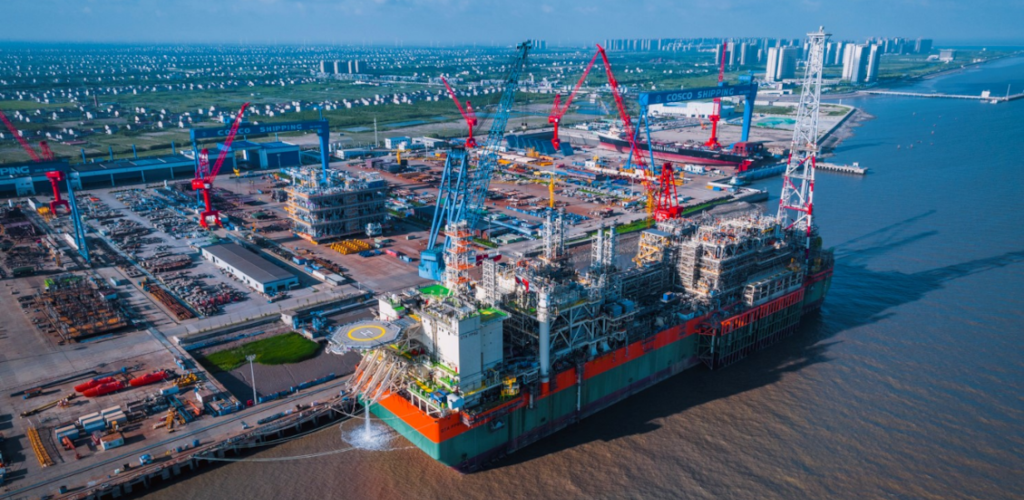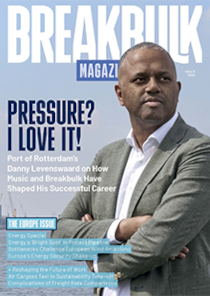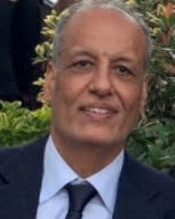African Nation Poised to Embrace Hydrogen-Powered Future

By Liesl Venter
In a feature story from Issue 3, 2023 of Breakbulk Magazine, we look at some of the exciting opportunities for project logistics that are starting to emerge in the West African state of Mauritania.
 Amid bountiful natural resources, African nations compete fiercely for global investment attention. This is also true of Mauritania, a country grappling with ongoing poverty and unemployment.
Amid bountiful natural resources, African nations compete fiercely for global investment attention. This is also true of Mauritania, a country grappling with ongoing poverty and unemployment.
Nestled in the northwest corner of Africa, Mauritania has been striving for years to implement reforms that enhance its business climate, attract foreign investment, and diversify its economy. Despite continuous efforts, it frequently remains unnoticed as it is overshadowed by its more well-known neighbours like Morocco, Egypt, and Tunisia. The harsh climate, characterised by hot, dry, and windy conditions, coupled with its remote location, only compound its challenges, causing project developers to seek opportunities elsewhere on the continent.
Ironically, these very conditions have now propelled the West African nation onto the global stage. As hydrogen, the most abundant element in the universe, has gained significant attention as a promising solution to address global challenges such as climate change, energy security, and the transition to a low-carbon economy, so Mauritania has emerged as the ideal location for its production.
“Mauritania has made significant strides in the adoption of renewable energy, with a growing number of projects being launched across the country,” said Mohamed Abdellahi Yaha, owner and CEO of Maurilog, an integrated logistics service provider that has been operating in Mauritania for decades. “When it comes to hydrogen the potential is huge and there is a growing realisation of this around the world. Right now, three of the biggest hydrogen projects planned for Africa are in Mauritania.”
Potential Underestimated
 Yaha believes the hydrogen potential is, in fact, far bigger than currently perceived. “The conditions in the country are perfect. The abundance of solar and wind resources, along with a large amount of space available, make it an ideal destination for green hydrogen projects. Our proximity to Europe only makes the offering more enticing.”
Yaha believes the hydrogen potential is, in fact, far bigger than currently perceived. “The conditions in the country are perfect. The abundance of solar and wind resources, along with a large amount of space available, make it an ideal destination for green hydrogen projects. Our proximity to Europe only makes the offering more enticing.”
Compared with other West African countries Mauritania stands out, he said. “Nigeria, for example, has the space and the sun, but not that much wind. Morocco, on the other hand, has good sun and wind but less space especially as the Western Sahara dispute continues. Mauritania, however, has the exact conditions required.”
According to the UN Agency for Renewable Energy, the country’s renewable energy potential amounts to at least 4,200 GWh. In 2020 the government adopted a national strategy to transform its energy sector, setting itself a goal to increase its share of renewable energy in its energy mix to 60 percent by 2030. Development of the BP-operated Greater Tortue Ahmeyim liquefied natural gas (LNG) project is currently underway. The first exports from this project are expected before the end of this year.
Change in Mauritania, Yaha said, was therefore imminent. “We are on the cusp of some very big developments that have the potential to change the trajectory of our country.”
Ismail Abdel Vetah, a senior advisor to the Mauritanian Ministry of Petroleum, added that hydrogen is the gamechanger the country has been waiting for. “The studies have been done and the strategy is in place. To date, we have signed four agreements putting us on track to become one of the major players in the world’s energy transition,” he told Breakbulk.
Vetah said what stands out is the speed at which the hydrogen sector is developing in Mauritania. “Africa is not known for quick delivery, and it can take years to get a project off the ground. What we are seeing in Mauritania is a definite increase in pace to get these projects up and running.”
He said the government had taken a proactive approach. “The strategy is realistic and achievable and the goals that are being set are attainable. This is not a case of just talking about the potential that exists but systematically doing the necessary work to turn it into a reality. We believe that we will see the construction of at least one of the four projects start no later than 2026 with the first hydrogen produced as early as 2027.”
According to Vetah, much work has already gone into developing the necessary political and economic frameworks. “By the middle of this year, we will be the first country to have a dedicated Hydrogen Code. We realised very early on that the existing Mining, Petroleum and Hydrocarbon Codes would not suffice. Having the correct legal framework in place is critical if we want to be successful with our strategy.”
Driving Change
Four projects are currently on the table in Mauritania. CWP’s Aman project, located in the Dakhlet Nouadhibou and Inchiri regions of the country, is a 30 GW green hydrogen project that will generate approximately 110 TWh at full capacity. It is expected to produce at least 1.7 million tons of green hydrogen per year. Chariot’s Project Nour will see another 10 GW of renewable energy installed for a production of 750,000 tons of hydrogen and 4.5 million tons of ammonia. Vetah said both these projects were progressing well with framework agreements signed.
In November last year, the government signed its third MOU, this time with BP to carry out several studies to evaluate the feasibility of producing green hydrogen. “The fourth MoU was signed in March this year with Infinity Power and Conjuncta,” Vetah said. “This project will develop a plant over three phases with 15 GW of renewable energy for 10 GW electrolysis and a production of 8 million tonnes of ammonia. The first phase is expected to be operational by 2028.”
He said all four projects were ambitious, planned on a massive scale, and an indication of the country’s commitment to transitioning towards a low-carbon economy. “The importance of the current developments cannot be overemphasized. Hydrogen will play a critical role in Mauritania’s economic development and sustainable growth, creating much-needed employment along with a host of other opportunities along the value chain.”
Philippe Martinez, managing director of IFP Training ME, a subsidiary of the IFP EN group, said hydrogen had the potential to offer several benefits to Mauritania. “As a clean and renewable source of energy, it can reduce the country’s dependence on fossil fuels and lower its carbon emissions. Secondly, the production and export of hydrogen could provide economic opportunities for Mauritania. The country has significant reserves of iron ore; hydrogen could be locally used to produce green steel on a massive scale.”
He said the first LNG gas production – expected by the end of the year – would bring about much-needed economic change, but this would not be enough to drive the country’s growth path.
“Mauritania’s strong offshore winds and very good sun conditions possibly provide one of the best combined renewable energy resources in the world which would allow them to significantly reduce the cost of hydrogen produced. Leveraging its resources and its ability to drive down the cost there is no arguing that it could become a major exporter of green hydrogen.”
Obstacles to Tackle
Maurilog’s Yaha said while there was much excitement in Mauritania over the hydrogen developments this past year, there were several challenges that the country would have to overcome.
“The infrastructure required for the production, storage, and transport of hydrogen is non-existent. This means we will need significant investments to build the necessary infrastructure and establish the supply chain for it,” he said.
New roads, railways, pipelines and at least one port are necessary for the hydrogen strategy to stand any chance of success. “While this is in some respects a challenge, it is an opportunity for the project sector as it simply means more work. At the very least a new port will have to be built, while the existing two ports in the country would need to be upgraded. The country also does not have the necessary heavy equipment and that will all have to be brought in.”
Questions about skills shortages also abound, but according to Martinez, this is not as big an issue as one might think. “When it comes to renewables it is much easier in terms of competency than oil and gas, for example. The wind is there and the sun and almost everyone knows where it is coming from. The project logistics capability will also be quite easy to address.”
Said Yaha: “It is not a difficult country to do logistics in and moving project cargo is not necessarily any more challenging here than in many other locations in Africa. The government will have to find the resources, however, to upgrade and expand its infrastructure to do so efficiently.”
According to IFP Training ME’s Martinez, the bigger challenge lies in the unpredictability that still exists around hydrogen itself. “There is still no international hydrogen market. This makes it very difficult to draw up a business plan as one is unable to foresee what will be sold to whom. This is a challenge not just faced by Mauritania, of course, but all countries looking at hydrogen production.”
Also, given that green hydrogen projects are only in their early stages of development, the prices and costs of the main project drivers remain uncertain.
“At this stage, the assumption is that the hydrogen will be converted into ammonia which will be transported and exported. It is an easy enough derivative, and the market has shown steady growth over the past few years and is expected to continue growing around 5 or 6 percent per annum,” Martinez said.
In light of growing competition in the hydrogen sector, Mauritania was considered to be doing well. “The government has taken a pragmatic approach and is doing very well in what they have achieved so far. Moving faster will, however, become necessary. One must not forget that when it comes to hydrogen there is no infrastructure anywhere ready to use, but the competition is fierce and there are plenty of locations where it could happen. Being the first to market could hold significant advantage for Mauritania,” Martinez said.
Breakbulk Europe 2023 will be hosting a "Global Project Review" main stage session on Thursday 8 June from 12:00-12:30. The session will be presented by Neil Golding, director of market intelligence at the Energy Industries Council. Click here for this year's full programme.
PHOTO: bp Greater Tortue Ahmeyim fpso vessel. CREDIT: bp
